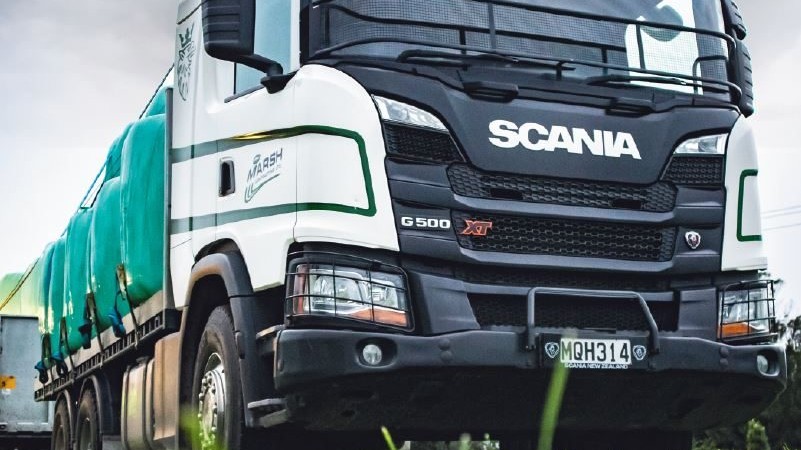Dressed Rehearsals

The best resolutions happen when both parties understand each other’s needs. Reaching a point of mutual satisfaction means you are not always going to leave the negotiation table elated by the outcome; that’s just the nature of respecting and accommodating opposing views. If you weren’t opposed in some way, you wouldn’t be negotiating to start with.
As sad as it may be, negotiation is most effective when both parties clearly understand the size of the Rottweiler tied to each other’s clothesline. It’s how we’ve maintained relative world peace for 75 years.
Hard on the heels of the recent infrastructure cutbacks, the government’s response to an illegal protest took the form of a new, billion-dollar bike bridge for Auckland. In the wake of that, I fielded several calls from irate truck operators and drivers wanting to reinvigorate the idea of blockades. I’m acutely aware I’ve been vocal about political abuse levelled at the road transport industry from a contemptuous administration, resulting in a less-than appropriate response from a muddled representation. But the calls I fielded baying for action shouldn’t have come to me. They should have gone to whatever club the caller belonged to (and in the event they were not aligned to one, they should probably join one). Representation is key to countering or responding to the Beehive’s belligerence. We have representative mechanisms galore, so going off half-cocked on some leftfield crusade just adds to the industry’s internal noise. If the membership of an association is dissatisfied, they should signal the need for change and effect it appropriately. It’s the reason places like Gettysburg were strewn with bodies – the preservation of democratic choice and process.
And, yes, this contemptuous administration is long overdue for a wakeup call. The fact a bunch of cyclists outmuscled the trucking industry’s representation in one act, resulting in a billion-dollar windfall, says far more about us than them.
I listened to Transport Minister Michael Wood speak at the NRC AGM on 18 June. It was a polished monologue that had some saying, “He comes across well.” I wasn’t so convinced.
His pattern was to raise a contentious issue and follow it with a patronising platitude on our perceived accomplishments and value. Then, there were comments such as, “Your work is enormously important.” He also referred to us as a “sector”. I found that interesting also. When your “sector” moves 93% of the freight, you’re not “enormously important”; you’re mission-critical.
Likewise, we’re not a sector. Retail is a sector; housing is a sector. We are all sectors. Without us, all sectors stop. Every one of them. Not one survives beyond subsistent hippies living in the Coromandel or Golden Bay.
Yes, Wood wants to fluff around “improving freight connections” and “giving people better transport options”, but that’s being seen to do the right thing, just like importing foreign coal for Huntly so you can say we don’t mine coal for generation purposes.
Rail and coastal shipping are, in all reality, incapable of anything beyond support for road.
In the unlikely event that we do stop talking and ‘buy whiskey’, so to speak, my preference would be to simply cease operations for a time. Such an act would pose no immediate threat to the safety of families and people. It would not be illegal. There’d be no nose-to-tail accidents because someone didn’t see the cars stopped for the blockade. There’d be no roadside scuffles filmed for TV. And when the phones started ringing, we could simply direct the caller to Minister Wood’s office, wish them a lovely day, and hang up. If Wood wants a clear demonstration of how important we are, simply stopping and remaining polite and non-confrontational would be it. We don’t need to shout and bellow like stuck pigs.
It would be interesting to see how long it took for calls to come back the other way.
“Minister, we’re only a sector? But while you’re there, how about that billiondollar bike bridge? Let’s talk about the Napier-Taupo Road, Takaka Hill and that Mill Road cancellation. Oh, and this might be an opportunity to cover off work-time hours, the ferry terminals, and engineering certification consistency? Let’s make a plan, sir.”
The risk is the realisation of our sway and any resulting future abuse of that influence. It’s after the event that real leadership would need to kick in on our side. This is not a tactic you deploy every second month because you can’t get your way. This is a strategy you turn to when a government chases ideological votes while key project infrastructure is binned, and the country’s largest workplace and asset is falling into ruin in front of Worksafe and Waka Kotahi’s eyes.
But again, we need our organisational and leadership ducks in order before anything happens.
If we did get a cohesive action sorted, it would have immeasurable benefits down the track in terms of convincing the Beehive to deal with us appropriately, with ears ‘on’. As an industry, we need to be in a position of real strength when labourmarket reform really kicks into gear. With Minister Wood also being the minister for workplace relations and having a historical union bent, we want him sitting respectfully, fully attentive, and open-minded when that all starts.

Read more
40 fabulous years
0 Comments3 Minutes
40 not out!
0 Comments4 Minutes
The more things change…
0 Comments5 Minutes
Keeping up with the times
0 Comments4 Minutes




